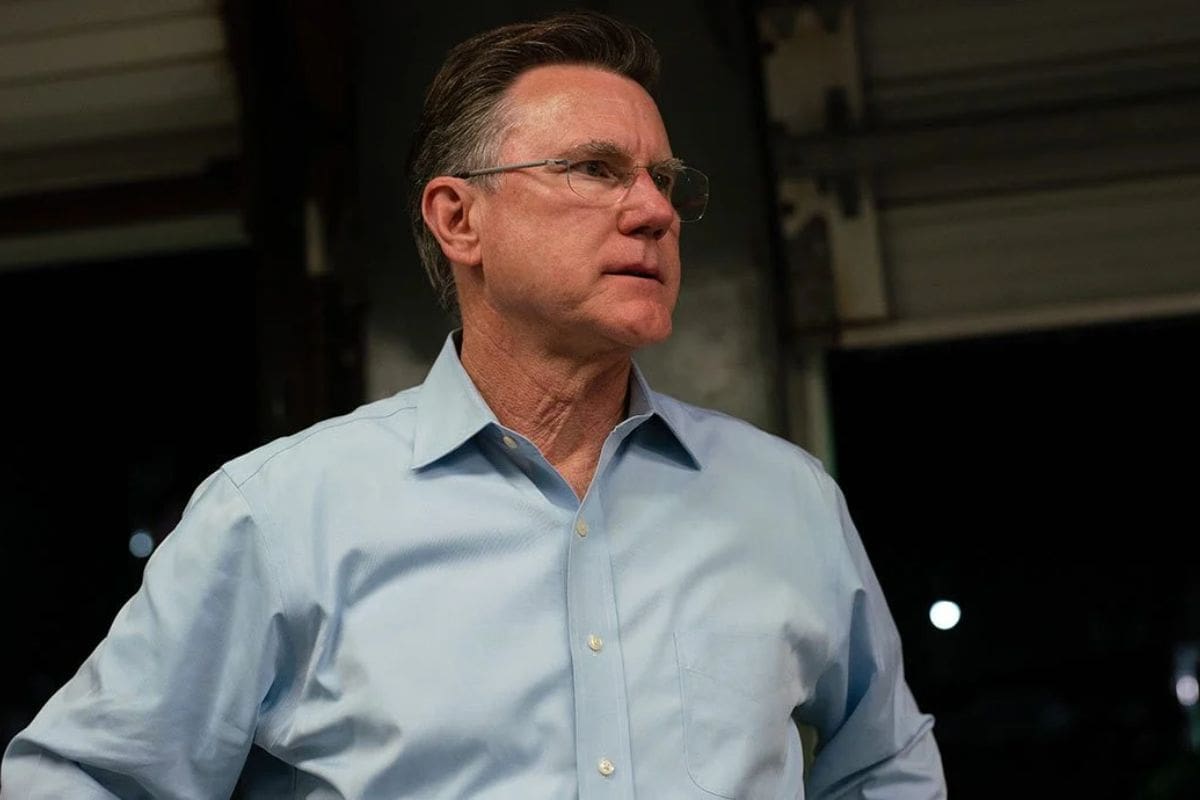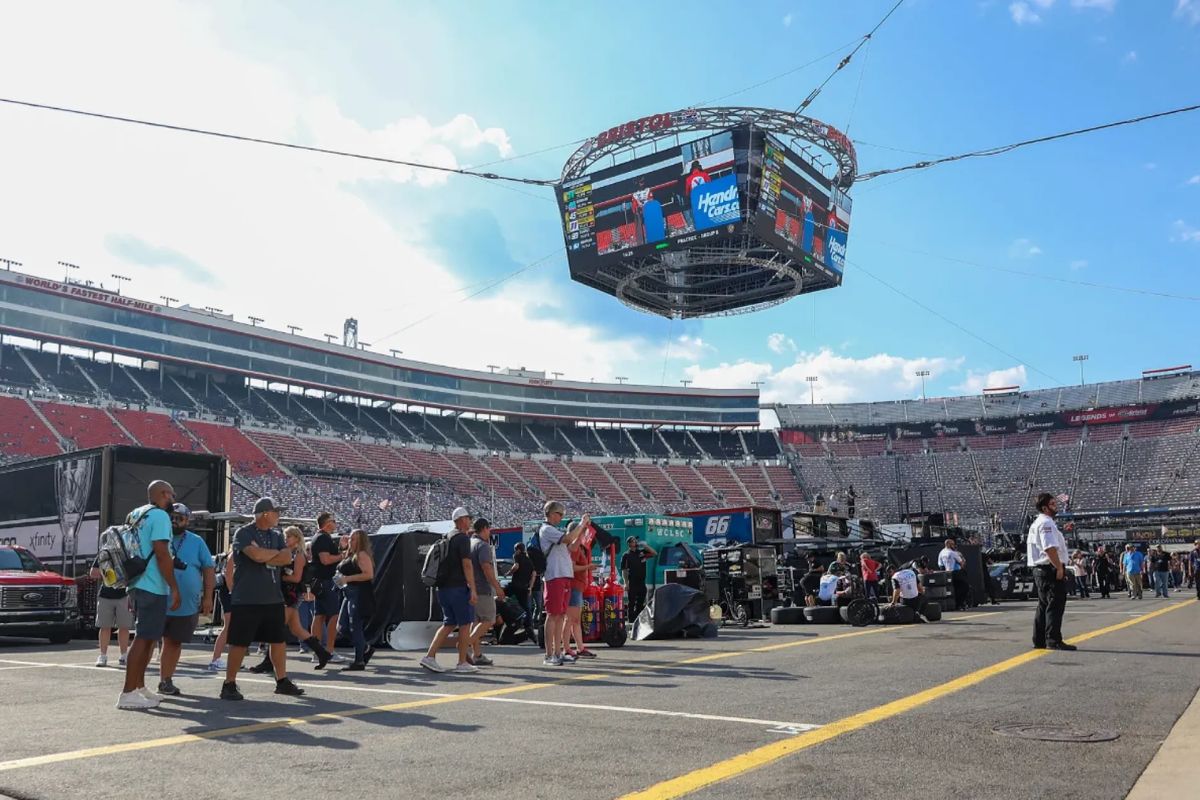Elton Sawyer Responds Fan Demands: In a significant pivot reflecting NASCAR’s adaptative strategy, Elton Sawyer has recently articulated a series of anticipated changes aimed at addressing the persistent concerns oiced by fans regarding the quality of racing events. Central to this reform is the reevaluation of practice sessions, a topic that has stirred considerable debate amongst stakeholders. This development underscores NASCAR’s proactive stance in fostering a more engaging and competitive environment, which not only prioritizes fan input but also aligns with drivers’ aspirations for fairness and safety. As these discussions evolve, the implications for NASCAR’s operational protocols and its broader cultural resonance remain to be seen.
Key Takeaways
- Elton Sawyer is actively addressing race quality issues in response to community outcry.
- NASCAR remains committed to reduced practice sessions to enhance viewer experience.
- Strategic changes include restructuring practice sessions for better broadcast efficiency.
- Fan feedback plays a crucial role in shaping NASCAR’s decision-making and policies.
- NASCAR aims for a balance between entertainment value and competitive fairness.
NASCAR Responds to Fan and Driver Concerns
In response to escalating concerns from fans and drivers, NASCAR, led by Senior Vice President of competition Elton Sawyer, has pledged to address and rectify a series of issues that have marred the racing experience. The recent deterioration in race quality, particularly at short tracks and the initial night race at Talladega Superspeedway, has prompted a significant outcry from the NASCAR community. These issues not only affect viewership satisfaction but also directly impact driver performance and safety, making them critical areas for immediate intervention.
Elton Sawyer’s engagement on the DJD Reloaded podcast was a strategic move to communicate directly with the core NASCAR audience. His presence on such a platform underscores the urgency and seriousness with which NASCAR is treating the feedback from its community. Sawyer’s acknowledgment of the ‘lackluster on-track content’ is a candid admission of the challenges NASCAR faces in enhancing the race-watching experience and aligning it with the expectations of its fan base.
The commitment to making substantive changes reflects a responsive governance approach. By addressing these concerns, NASCAR is not only working to improve the quality of its races but also to maintain its credibility and appeal in a highly competitive sporting landscape. This proactive stance is pivotal, as continuous dissonance between drivers and officials can erode the foundational trust and enthusiasm that sustain the sport.
Moving forward, the effectiveness of these interventions will be closely monitored by stakeholders. The ability to swiftly and effectively implement changes will be key to restoring faith among disillusioned fans and participants, thereby reinforcing NASCAR’s position as a premier motorsport league.

NASCAR’s Stance on Reduced Practice Sessions
Amid ongoing efforts to improve race quality, NASCAR’s decision to maintain reduced practice sessions at superspeedways remains a topic of debate among drivers and fans alike. As the Cup Series approaches Talladega Superspeedway, the limited practice framework is under scrutiny. Drivers express concerns that insufficient practice time may negatively impact their performance and the race dynamics as a whole. However, Elton Sawyer, the Vice President, argues that reduced practice has not greatly affected the racing quality this season, which has been particularly dynamic and engaging.
Sawyer emphasized that the restructuring of practice sessions into shorter, split formats allows for increased broadcasting of the teams’ preparatory activities. This adjustment serves dual purposes: maximizing on-air content for fans and maintaining a condensed yet effective practice schedule for teams. The approach aims to enrich the fan experience by providing more behind-the-scenes insights and live action, thereby bridging the gap between practice and qualifying sessions.
The strategic decision to limit practice time at superspeedways is part of a broader initiative to streamline operations and improve the spectator experience. While it remains a contentious issue, the benefits cited by NASCAR officials include not only increased viewer engagement but also logistical efficiencies for teams and organizers. As NASCAR continues to adapt its practices, the balance between competitive fairness and entertainment value remains a critical focal point, ensuring that changes in practice schedules align with the overarching goals of the sport.

NASCAR’s Commitment to Fans and Drivers
NASCAR’s dedication to both fans and drivers is evident through ongoing dialogues and adaptations in their racing operations. Elton Sawyer, in his most recent statements, emphasized the significant role that fan feedback plays in shaping the sport. The organization’s readiness to listen and adapt based on this feedback underscores its commitment to improving the racing experience not just for spectators but also for the participants.
The impact of fan input on NASCAR’s decision-making process is both significant and revolutionary. Sawyer pointed out that the current racing quality, which many consider superior to that of the past five years, is a direct result of listening to the community. This open channel of communication ensures that NASCAR remains responsive and relevant in a rapidly evolving sports landscape.
Here is a breakdown of the key elements of NASCAR’s strategy to engage with and respond to its audience and drivers:
| Aspect | Description |
|---|---|
| Fan Influence | Fans’ opinions are crucial to decision-making, heavily influencing the direction and policies of NASCAR. |
| Driver Engagement | Despite some decisions not aligning with all drivers’ preferences, ongoing efforts are made to balance driver feedback with fan demands. |
| Quality of Racing | The improvements in race quality are attributed to actively incorporating feedback from both fans and drivers. |
| Adaptability | NASCAR shows a strong willingness to adapt and modify practices based on community input, aiming for a balanced approach. |
This approach not only demonstrates NASCAR’s dedication but also highlights its strategic flexibility, ensuring the sport’s growth and sustained relevance in the eyes of its stakeholders.
The Debate Over Practice Sessions
The reduction of practice sessions has sparked considerable debate regarding its impact on both rookie performance and the general quality of racing. With NASCAR’s decision to limit these sessions, ostensibly to free up broadcasting schedules for other content, the challenge for newcomers like Shane van Gisbergen has intensified. Typically dominant in road courses, van Gisbergen struggles to adapt to the quintessential NASCAR tracks, highlighting a broader issue for rookies who are deprived of essential hands-on experience.
Critics argue that the lack of practice time hampers the development of driving skills and race-day strategies, particularly for those unfamiliar with NASCAR’s diverse range of tracks. This shortfall potentially compromises the spectacle of racing, as less-prepared drivers might not perform to their best, affecting the overall competitiveness and entertainment value of events.
Conversely, proponents of the reduced practice schedule cite recent seasons’ thrilling races as evidence that extensive practice may not be as critical as presumed. NASCAR Vice President Elton Sawyer expressed on DJD Reloaded that despite some areas needing improvement, like short tracks and road courses, the general quality of racing has been commendable. He suggested that the exciting nature of recent races might indicate that the absence of practice sessions is not detrimental to the sport’s appeal.
This ongoing debate touches on fundamental aspects of professional motorsport management: cost-efficiency, audience engagement, and racer preparedness. As NASCAR continues to evaluate the effects of their scheduling choices, the balance between these factors remains a pivotal concern. The reduction in practice times showcases an innovative phase in NASCAR’s operational strategies, directly influencing the dynamics of competition and racer readiness.

Looking Forward
As discussions continue about the efficacy of reduced practice times, it becomes increasingly important to examine potential future implications for NASCAR’s operational and competitive landscapes. Elton Sawyer’s insights suggest a pivotal shift towards optimizing content delivery over extending practice durations. This approach posits that shorter practice sessions may indeed lead to more dynamic and unpredictable races, possibly enhancing viewer engagement and race day suspense.
Analyzing the strategic underpinnings, it’s clear that NASCAR must carefully balance the traditional benefits of practice—team coordination and car optimization—against the potential for heightened competition and viewer appeal. Sawyer’s perspective implies that prolonged practice sessions could lead to homogenized performances where cars merely ‘run nose to tail,’ thus diluting the spectator experience. This raises questions about the ideal amount of practice that fosters both competitive equity and entertainment value.
Looking ahead, the decision to streamline practice times could serve as a litmus test for NASCAR’s adaptability in an evolving sports entertainment landscape. Should this approach resonate positively with fans, it could herald a new era where strategic resource allocation—time, technology, and talent—is guided more by entertainment metrics than by traditional preparative routines.
Moreover, the long-term implications of this shift could extend beyond immediate race outcomes. They might influence developmental pathways for drivers and teams, altering how skills are honed and integrated into race day strategies. In essence, the ongoing evaluation of practice time efficacy will not only shape NASCAR’s operational tactics but also its competitive ethos, potentially redefining what it means to excel in motorsports under evolving viewer expectations.
News in Brief: Elton Sawyer Responds Fan Demands
NASCAR’s proactive engagement with its fan base and drivers under Elton Sawyer’s leadership marks a pivotal shift towards refining the race experience.
By addressing concerns over race quality and practice sessions, NASCAR demonstrates a firm commitment to enhancing both spectator satisfaction and driver performance.
This strategy not only preserves the sport’s integrity but also secures its continued relevance in the competitive sphere of motorsports, aligning with evolving audience expectations and safety standards.
ALSO READ: Natalie Decker’s NASCAR Practice Solution: Revolutionary Fix
